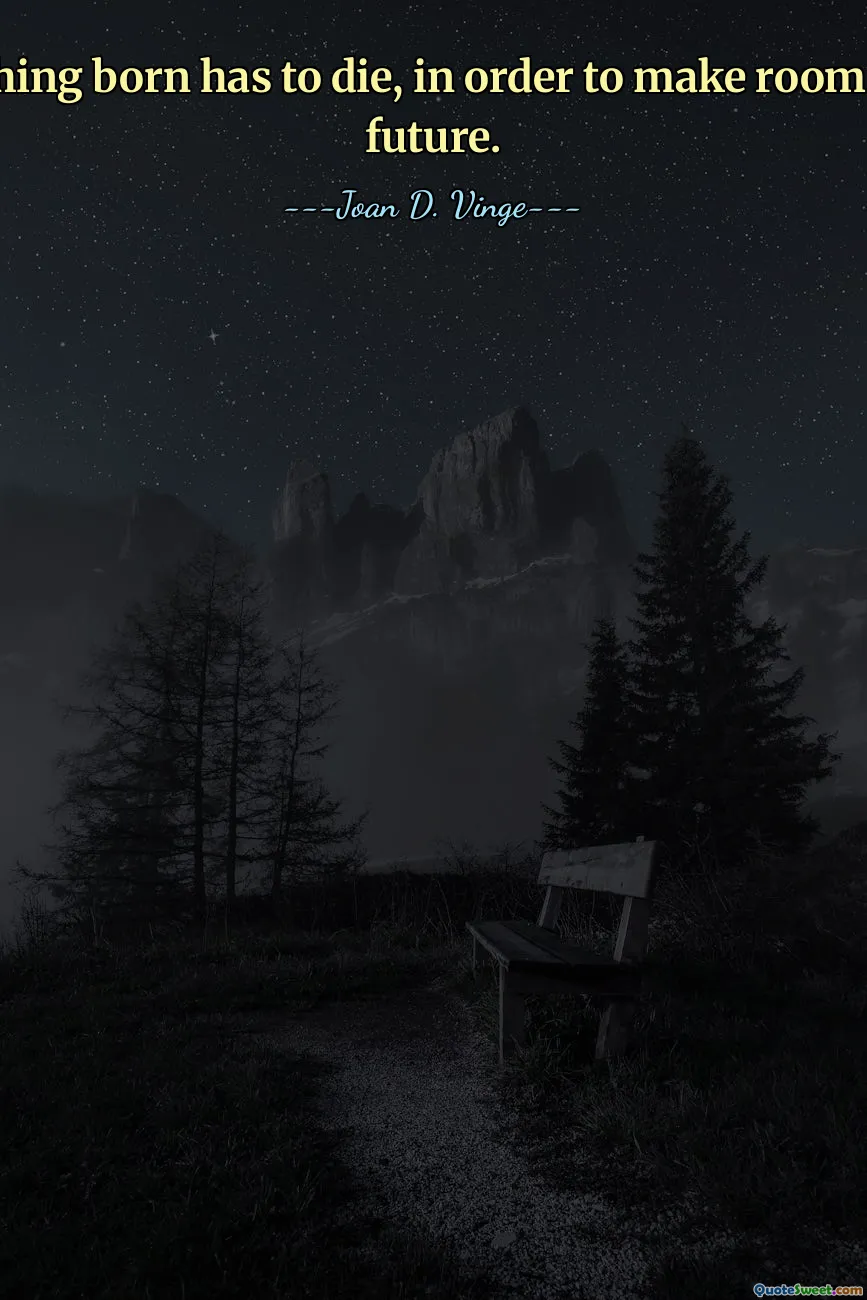
Everything born has to die, in order to make room for the future.
This quote encapsulates the fundamental cycle of life and change that is intrinsic to existence. The notion that death is a necessary part of life can be both comforting and challenging to grasp. It reminds us that growth, renewal, and progress often rely on the end of previous stages or entities. In nature, we observe this constantly: trees shed their leaves to prepare for new growth, animals give birth and eventually pass away, and ecosystems evolve through destruction and regeneration. This cycle enables creation and innovation, and understanding this can help us accept loss as a natural precursor to new beginnings.
On a philosophical level, accepting that everything born must eventually die can affect our outlook on personal and societal development. It urges us to cherish moments, achievements, and relationships because they are transient. Furthermore, it can be comforting, providing solace during times of grief by underpinning the idea that change is inevitable and necessary. From a broader perspective, embracing mortality promotes humility and a deeper appreciation for the present.
In a more optimistic view, recognising that endings give way to new starts can inspire hope and resilience. Rather than fearing loss, we can see it as a vital component of the continual cycle of creation. This understanding motivates us to embrace change, make meaningful choices, and recognize the importance of impermanence. Ultimately, this cycle of birth and death fuels the evolution of ideas, societies, and ourselves, affirming that progress often demands closure to pave the way for a new chapter.






